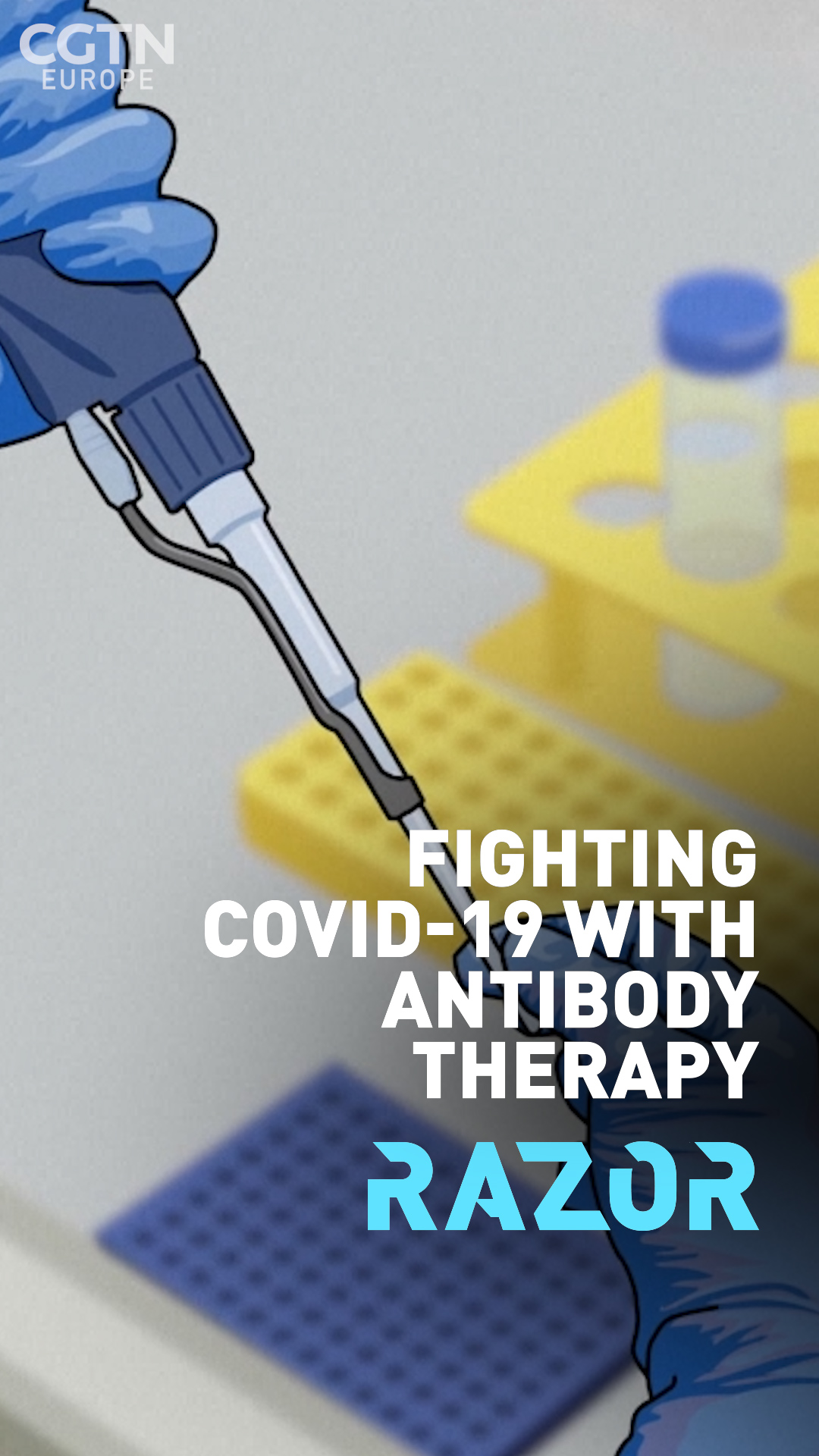03:50

Scientists at Stanford University in California are developing an antibody therapy to fight COVID-19.
CGTN Europe's RAZOR team spoke to Yvonne Maldonado, an infectious diseases epidemiologist, to find out more about antibody therapy and the potential role the research and developments could play in the current health crisis.
Why do COVID-19 patients experience different symptoms?
This is a small RNA virus, and it seems to attach to a receptor that is found very commonly in the nose and the lungs and other organs as well.
As for experiencing different symptoms, it is most likely to do with the attachment of the virus to the particular receptor.
This is a receptor that is found on the surface of the human's respiratory cells. In attaching to that receptor, it may trigger the infection of the cells again and inflammatory and immune response.
Any immune response that we see for any viral infection or bacterial infection can be attributed in many cases to the immune response that we have.
When we experience a fever, chills, profuse sweating, or muscle aches, these are the result of our immune system that's ramping up and causing this massive human body response to killing the organism.
One of the unique features of this virus is it seems to trigger like all organisms should make an immune response. Still, the immune response to this virus in some cases can go out of control and it can lead to a hyper-inflammatory condition. That's where we tend to see the most severe complications.
What are the phases of the symptoms?
The immune response has two phases. You have that first phase where you feel sick. You know, most people report a sore throat, maybe the loss of smell that might come back later over time, muscle aches, fever.
A week or so later, many people experience a severe respiratory illness and pneumonia.
People can experience a lot of blood clotting in different or of different blood vessels in the body" as well as developing other inflammatory responses.
What can be done to help people with these symptoms?
Scientists at Stanford University are working on antivirals that would reduce the amount of virus in the body.
"The idea there would be if you reduce the virus in the body, are you also reducing the response over time? So, that is if you can get rid of the virus faster, will that keep that secondary surge of responses from kicking in?" says Maldonado.
Attacking the virus directly is also another option, but this has to be done in controlled clinical settings for the individual person.
"Unfortunately, at this point, a lot of this is symptom relief and obviously making sure people know when they can come into the hospital to be treated."
What is antibody therapy and how will it work?
Antibody therapy uses treatment to help the body to fight cancer, infection and other diseases. Many medicines work in a similar fashion.
When people get infected, you take their blood and you purify out some of the antibodies in that blood and you infuse that into infected people. The idea there is that you're giving people immunity from somebody else.
These may work to suppress the virus and its immune response but it is not certain yet.
We are currently waiting for the US Food and Drug Administration (US FDA) to approve the use of these drugs, which can then be trialed at Stanford to see if they're safe and effective in a short term way.
Check out The Pandemic Playbook, CGTN Europe's major investigation into the lessons learned from COVID-19.
Video editor: Steve Chappell